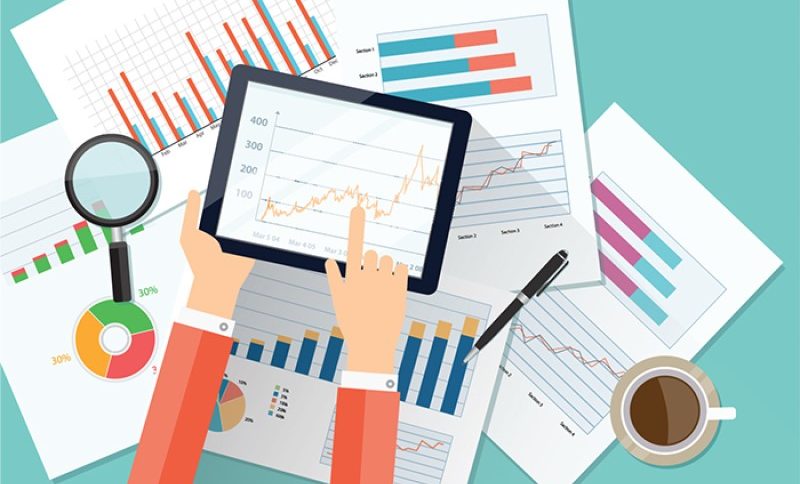If you’re running a small business, you know that keeping track of finances can be a challenge. That’s why it’s important to have business accounting software that can help you keep track of your finances and manage your cash flow. In this blog post, techzvn.net will discuss the different types of business accounting software available, and which one is best for your needs. So read on to find out more!
What is accounting software?
Accounting software is a type of software application that is designed to help businesses and organizations manage their financial transactions, including bookkeeping, invoicing, billing, payroll, and tax filing.
With accounting software, businesses can automate many of their financial tasks, which can help to reduce errors and save time. The software can also generate reports and financial statements, which can help businesses make informed decisions about their finances.
Accounting software may include features such as accounts payable and receivable management, bank reconciliation, expense tracking, budgeting, and forecasting. Some software also integrates with other business applications, such as customer relationship management (CRM) or enterprise resource planning (ERP) systems.
There are many different types of accounting software available, ranging from simple, low-cost programs for small businesses to more complex, feature-rich software for larger organizations. Some software is installed locally on a computer, while others are cloud-based and accessed through a web browser or mobile app.

About business accounting software
As a small business owner, managing your finances can be challenging. But it doesn’t need to be with the proper equipment and resources. Business accounting software is one of the most valuable resources you can invest in to help streamline your finances, improve accuracy, and save time.
Business accounting software is designed to help you manage your financial transactions, track expenses, generate invoices, and produce financial statements. With these features, you can make informed decisions about your business and better understand your financial standing.
There are many different types of business accounting software available, each with its own unique features and benefits. Some are designed for specific industries or business sizes, while others are more general and can be customized to fit your needs.
Whether you’re a small business owner or an accountant working with small businesses, having a solid understanding of business accounting software is essential. In this guide, we’ll explore the different types of business accounting software, their features, and how they can benefit your business.
Types of business accounting software
1. General Accounting Software
General accounting software is one of the types of business accounting software that is designed to help businesses manage their financial operations, such as bookkeeping, invoicing, billing, and financial reporting.
General accounting software typically includes features such as accounts payable and receivable management, bank reconciliation, budgeting, forecasting, and financial reporting. It may also include tools for managing fixed assets, inventory, and other financial resources.
2. Payroll Software
Payroll software is a type of business accounting software designed specifically to help small businesses manage their payroll processes. With payroll software, businesses can automate many aspects of payroll, including calculating employee salaries and wages, generating pay stubs, and managing payroll taxes.
Payroll software can help small businesses save time and reduce errors by automating many of the manual tasks associated with payroll. It can also help businesses stay compliant with federal and state payroll regulations, such as tax withholding and reporting requirements.
3. Enterprise Resource Planning (ERP) Software
Enterprise Resource Planning (ERP) software is one of the types of business accounting software designed to help large businesses manage their operations, including financial management, supply chain management, human resources, customer relationship management, and other core business functions.
ERP software integrates various departments and functions of a business into a single system, providing real-time data and insights that can help businesses make informed decisions and improve efficiency. With ERP software, businesses can automate many tasks, such as accounting and financial reporting, inventory management, and order processing.

4. Inventory Management Software
Inventory management software is a type of business accounting software that is designed to help businesses manage their inventory levels, orders, and stock movements. With inventory management software, businesses can track inventory levels in real-time, automate inventory replenishment, and streamline order processing.
Inventory management software typically includes features such as inventory tracking, stock alerts, order management, and purchasing and receiving. Some inventory management software may also offer additional features such as barcode scanning, serial number tracking, and product categorization.
5. Invoicing Software
Invoicing software is one of the types of business accounting software that is designed to help businesses create and manage their invoices. With invoicing software, businesses can create and send invoices to customers, track payment status, and manage accounts receivable.
Invoicing software typically includes features such as customizable invoice templates, automated invoicing, payment reminders, and integration with payment processing systems. Some invoicing software may also offer additional features such as time tracking, expense management, and project management tools.
Bottom Line
In conclusion, there are several types of business accounting software that small businesses can use to manage their financial operations. These include general accounting software, payroll software, invoicing software, inventory management software, and enterprise resource planning (ERP) software.
Ultimately, the choice of accounting software will depend on a business’s specific needs and budget. By selecting the right accounting software, businesses can improve their financial efficiency, reduce errors, and gain better insights into their financial performance.
